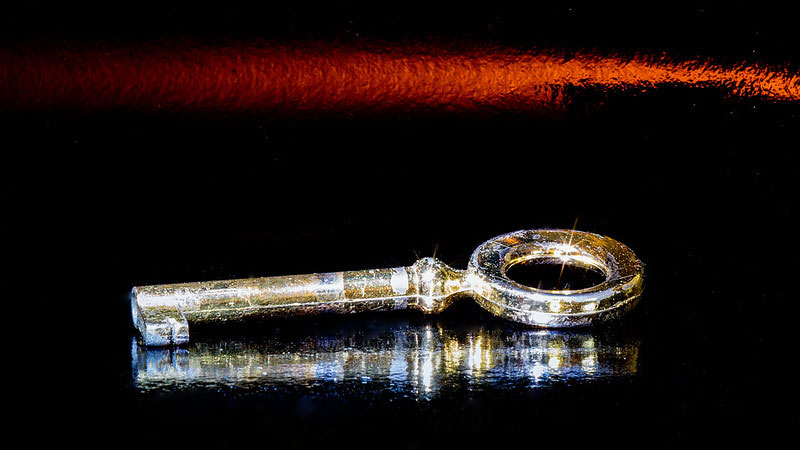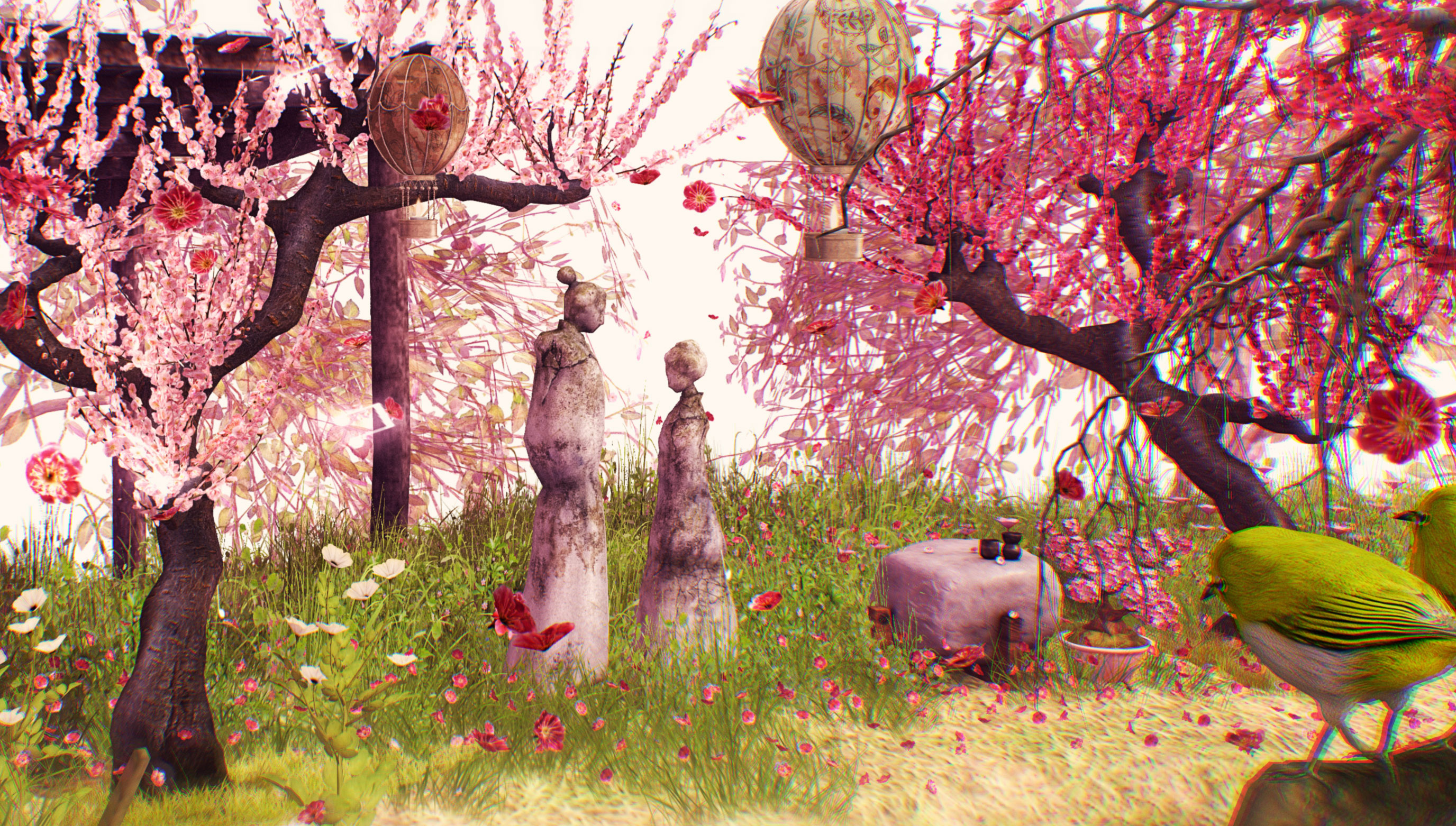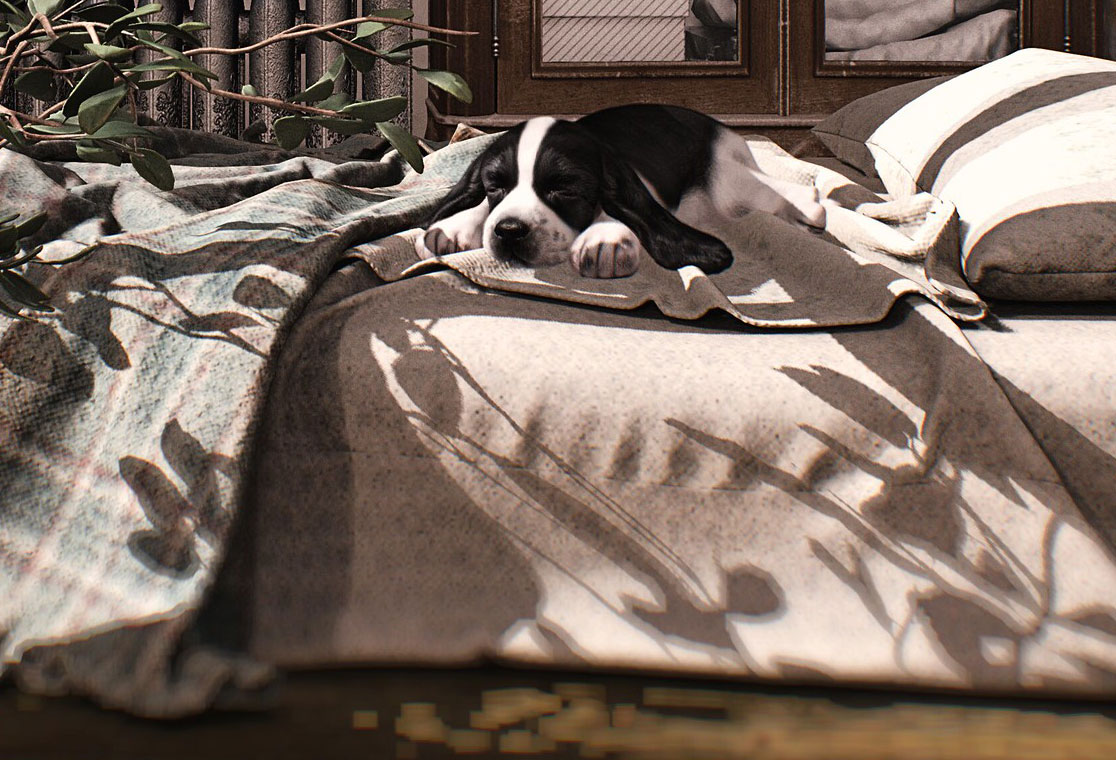Doghouse
the dynamics of blame

by Katy Elphinstone, March 2024
-
Doghouse – noun – dȯg-hau̇s
Meaning:
1. A shelter for a dog,
2. A state of disfavour.‘in the doghouse’ (idiom UK and US informal) - If you are in the doghouse, someone is annoyed with you and shows their disapproval.
-
The blame approach vs the non-blame approach
Here are five different everyday scenarios, to show how it might look when we use a 'blaming' approach vs a 'non-blaming' one.
Scenario 1: The dog has pooed on the carpet
The blame approach:
‘Stupid dog, could you not have waited five minutes?’ And/or, to our partner, ‘Why didn’t you let her out?’
The non-blame approach:
(To the dog) ‘Oh poor love, no one noticed you needed to go! I guess we were all too busy doing other things.’ Responsibility
You may have spotted a pattern in the sequences I’ve described above. Responsibility. Yes, that word.
With the non-blame approach, we consistently take some responsibility for whatever’s happening. Even just a little bit – and in many cases it can be collectively rather than personally (see the example about the politician).
The blame approach. Ah well, here, we’ve spotted responsibility (even just a little smidge of it) flying about in our vicinity… Quick, ‘Duck!’ And shwoops, it passes straight over our heads. Ahh, the relief when we see it heading off downstream – away from ourselves. Dodged that one, foof.
Indeed, most of us have, over the years, become so sensitive to any whiff of that stuff (responsibility – nay, blame!) that we pre-empt it by, every time we perceive a complication of any kind popping up, we instinctively take a large step away from it while emphasising our innocence and non-involvement. The most effective way, usually, of proving our own innocence, being when it’s someone else’s fault.
Basically, we’ve built ourselves a nice, sturdy doghouse and then, whenever the situation arises (i.e. a problem is spotted on the horizon), we do our darndest to make sure anyone but ourselves goes into it. We only go in there if we’re forcibly shoved into it by others and lack the power to resist.
Note: some people were so often shoved in, as children, that they internalized it and, when anyone more powerful than them is around and feeling annoyed about anything, they go straight into their own doghouse. They don't even try to fight it (what's the point?). Such people tend to attract those with very solid and sturdy doghouses reserved exclusively for others, since it’s quite convenient having someone around who goes in all by themselves whenever a problem looms. Less effort.
While it's clear we do hurt someone, just a little, each time we put all the responsibility onto anyone other than ourselves – a much greater problem lies in the collective.
Because, if all of us do that every time we see some responsibility (blame!) coming our way and we’re in a position to be able to dodge it... well, where does it all go? (After all, we know from our science lessons that things don’t just disappear).
-
Outcomes
My sister calls it ‘pooing in the water.’
And – surprise! – it’s all about power differentials.
Those with more power and resources live upstream. It’s never occurred to them that what they give out (or do not absorb, i.e. take responsibility for) heads merrily off downstream.
The people at the top spend a great deal of time, thought, and emotional energy simply to stay on top. It’s an exhausting – and very distrustful – life. No wonder they haven’t got much time or energy to think about where their waste goes!
Then we come to the next people down the river. They have a decent life, but they do end up taking in some of that poo-ey stuff. They do their utmost to avoid it, but sometimes (sigh) the responsibility does end up flumpsed on top of them in a way they can’t avoid. (After all, they can’t afford the best lawyers!)
These people avoid as much of the poo coming from upstream they possibly can (not all, but a goodly amount), and then they add some of their own to the water supply.
Very often, the more annoyed people are about having to take other people’s poo, the more toxic and voluminous their own tends to be... which then, of course, breaks over the heads of the people below them.
The water then passes on.
The next ones down might (for example) be the women of that social strata, and then, after them, the children.
You may be thinking ‘but mothers surely put their children first!’ Well, yes – we would. Only that we’re entirely unaware that every time we use our power differential to control other humans to our own ends (as we’ve been thoroughly trained to do) and to then shunt off all responsibility for having done that, we’re actually ‘pooing in the water.’
And so on.
I think you get the gist.
And right down there, in the shadow... right at the bottom of the river... where no one would ever choose to venture if they had any choice in the matter... people are literally dying. Yes, dying. (And not of old age!) The poor, the vilified, the marginalised, the disenfranchised. The crushed and the unsung peoples of the world.
Interestingly, however, while studiously avoiding ever looking too far down-river, we often have a fascination for those who live upstream. We might study their lives, look at pictures of them and their homes, read up about their careers, their home life, and their families.
The film The Platform shows this dynamic clearly. And (just like in the film), it would be very horrible indeed for us to have to take a proper look downstream – and to consciously realise what’s happening. Perhaps that’s why each of us responds with such adamant denial about personally having any role in it whatsoever.
-
The result
I know, it’s a terrible thought.
The answer to that question you are thinking (or, I sort of hope you’re thinking!) is ‘yes’.
We have indeed managed (applause, here!) to create a society where those with the greatest power and the most resources need take the least responsibility. And those with the least power and fewest resources must take the most.
The story of Adam and Eve has provided me with a perfect example of this. Woman is given the blame, the ‘original sin’, while man is given the power... she must follow and obey him. It’s so thorough that she’s literally cast as the whole reason humans suffer at all!
Such stories (similar to the “it’s all the immigrants’ fault” one) can only work in a world where the underlings have no voice to protest about the unfairness and harmfulness of such beliefs.
It’s always struck me as odd that people can be persuaded to believe that everything is the fault of those who have such limited decision-making power within society. It’s so illogical. I mean, how are they supposed to have done it? Divine intervention?
In between these two extremes everyone else exists, actively perpetuating the flow by avoiding responsibility (the dirty stuff in the water going downstream) in every way we humanly can, while putting in more waste of our own.
And yes, I agree – this small, inversely proportional, equation is a recipe for total and complete disaster. For our entire species. Well okay, and quite a few other species, too.
It is a very terrible conspiracy, with no conspirators.
Heavy sigh. We’re doomed! Apologies (writer regroups).
So, in our society, the ‘river of blame’, or the ‘river of responsibility’ (or, if we want to strike a more doom-filled note, the ‘river of punishment’) goes in the exact opposite direction to the flow of money, resources, and power. Naturally, as both are reliant on power differentials to push the current along... just in opposite directions.
Our current economic system is based on the principles of economic growth and competition – and everyone out there who’s ever completed a game of Monopoly knows how that story ends, once the flow reaches its natural conclusion.
Two rivers. Each a mirror image of the other. The river of gold going one way, and the river of poo going the other.
It’s rather poetic.
-
Back to us
The reason I started this article with such small and banal examples was because of my recent dawning awareness that we’re all complicit in this – me included!
My children have been my teachers. With them I began to see how, in doing the things I was meant to do, expected to do, as a mother, I was actually ‘throwing them under the bus’ (okay, or pooing in the water! Sorry for mixing my metaphors here).
That realisation was like a knife through the heart – because, by this time, I’d already thrown them under several buses. Especially my eldest.
Examples? Oh no, do I have to??
Okay. Deep breath. Plunge...
When my son was three, I’d somehow gotten into believing that he must go to nursery school. Must. Or the world would cave in (we were in a foreign country and I was told, if he didn’t learn the language early, he would never learn… etc.).
So I made him go. Right down to holding him down and putting his school uniform on him, forcibly.
Then, I held in my tears for the whole day (though I am certain he was suffering more than I was!). Later that night, when he was finally asleep, I helped myself to a large glass of wine.
My son didn’t resist me again – but he did withdraw away from me (and indeed, from the whole world!) in the weeks that followed. Until I finally found the strength to stand up for him, and not make him go anymore. It took years for that wound to heal.
And my daughter? Well, I used to sigh and look very tired when she needed things – especially when it came to emotional support. I could now protest about how tired and drained I was at the time, but, well, what’s the point in that? The difficult truth is, I trained my daughter not to turn to me when she needed help.
In both of these cases, you see, I placed the whole responsibility for the difficult situation we were in onto them. My little children. And I did not take any myself, nor perceive the larger context we were living within.
Uh oh...
Yes, we've come to the "what're we going to do?" part!
You may be thinking, ‘and now she is going to tell me – us all – that we all need to take more responsibility.’ And perhaps you might already be going (quite naturally, if I may say so!) a bit shifty and worried-feeling.
But no, I’m not going to say that... not at all!
Each of us telling ourselves sternly that what we’ve been doing so far was not good enough, is not the way forward.
Indeed, I’d go so far as to say that it’s just ‘more of the same’. It’s just we’ve now turned to punishing – blaming – ourselves. And when we do this, it triggers a natural human reaction of either apathy and despair, or else defensiveness (the latter being when we, with a very good instinct for self-preservation, fight against that debilitating feeling of shame).
And if all this humiliation, despair, or rage of ours is met with no compassion (neither from ourselves nor from others), we end up casting out parts of ourselves. Those parts we've perceived as being the 'culprits'. We fling them into the deepest, darkest doghouse of our own psyche and never visit them again.
So us feeling shame, resignation, or defensiveness doesn't stop (or even slow) the flow of poo. Instead, it pushes it along, as it strengthens that ethos of non-forgiveness.
And if we happen to meet someone who reminds us of those parts of ourselves? Well, it makes sense to promptly fling them into the doghouse too. Averting our gaze, as we pass, from from the pining, pale faces of the exorcised parts of our own soul. What a relief to once more leave them all locked up down there, as we ourselves (or what remains of us) resurface to sunshine!
Let me ask you a question...
Is anyone in your doghouse right now? Are parts of yourself in it? Would they be, if you looked truthfully and openly at yourself?

The golden key
The only way to not have anyone in the doghouse, is to not have one.
The golden key that won’t just open that doghouse but make it go, poof, and disappear – is compassion. But not just any old compassion, like, just for random people. It has to include yourself (or it doesn't count). All the parts of yourself. Not the littlest bittiest bit can be left out. Not even your left smallest toenail.
How, though? Since you can't have true compassion for others without first having compassion for yourself. But equally, how are you meant to have compassion for yourself until someone else does? If we've never had any, after all, we're unlikely to know what the stuff looks like. We probably wouldn't recognise it even if it fell on top of us from a passing plane.
Luckily, there are people out there who've studied the science and art of compassion. Tara Brach calls it 'radical compassion' (and I'd fully agree with her that it's quite radical, in the world we currently live in).
You can read basic guidelines about how to practise radical compassion here, or watch Tara Brach's talk about it, here. Or, if you'd like to go one stage further, you can go straight to her book on the subject, here.
In the arena of logic, where we're seeking a real way to exit this maze of bitterness we've all got tragically stuck in – whether it's directed against others or against ourselves (or both) – blame has no place. The truth is, everybody does things for reasons. Good reasons. Otherwise, fairly obviously, they wouldn't be doing them. One of my favourite sayings is, 'If I were you, I'd be doing exactly what you're doing... because I'd be you!'
Empathy, despite apparently being a weaker force, will positively change more things in the world than opinion ever will.
You know that left littlest toenail? Take your sock off. Have a look. Is it not simply supremely... lovable?
❤️
Images reprinted in this article with permission from the photographers as follows:
1. Dog is looking through his prison, Giovanni Iaione
2. Under the cherry blossoms, Miru
3. Gold, Innes House Photography
4. After the fire, Innes House Photography
5. Ribbon of Gold, Diane Wildowsky
6. Is This the #Real Life?, Ron Masters
7. The golden key, G. Sachowsky
8. Soft Puppy, Warm Puppy..., Miru
Scenario 2: The children are playing in the sandpit. One of them has started crying
The blame approach:
‘What’s happened here?’ (walking purposefully over and glaring at the other children in the sandpit, one by one). Or, ‘Honestly, can you kids not play five minutes together without creating a ruckus?’
The non-blame approach:
‘You’re not alright, are you… I’m coming, love… here I am!’ (offering comfort, figuring out in what ways the child is hurt, and trying to make things better for them).
Scenario 3: My boss has told me a report I handed in isn’t very accurate
The blame approach:
‘Well, it was Sally who gave me that data.’
The non-blame approach:
‘Hm yes, I didn’t check my data sources thoroughly.’
Scenario 4: Someone’s feeling hurt by something I said or did
The blame approach:
‘I’m sorry you feel that way.’
The non-blame approach:
‘I hurt you. I’m sorry.’
Scenario 5: a politician has been caught making corrupt deals
The blame approach:
‘He should be punished.’
The non-blame approach:
‘It’s awful that our system works in such a way that once people reach the upper levels of power, they’re often so badly compromised that things like principles and empathy have to fall by the wayside.’





